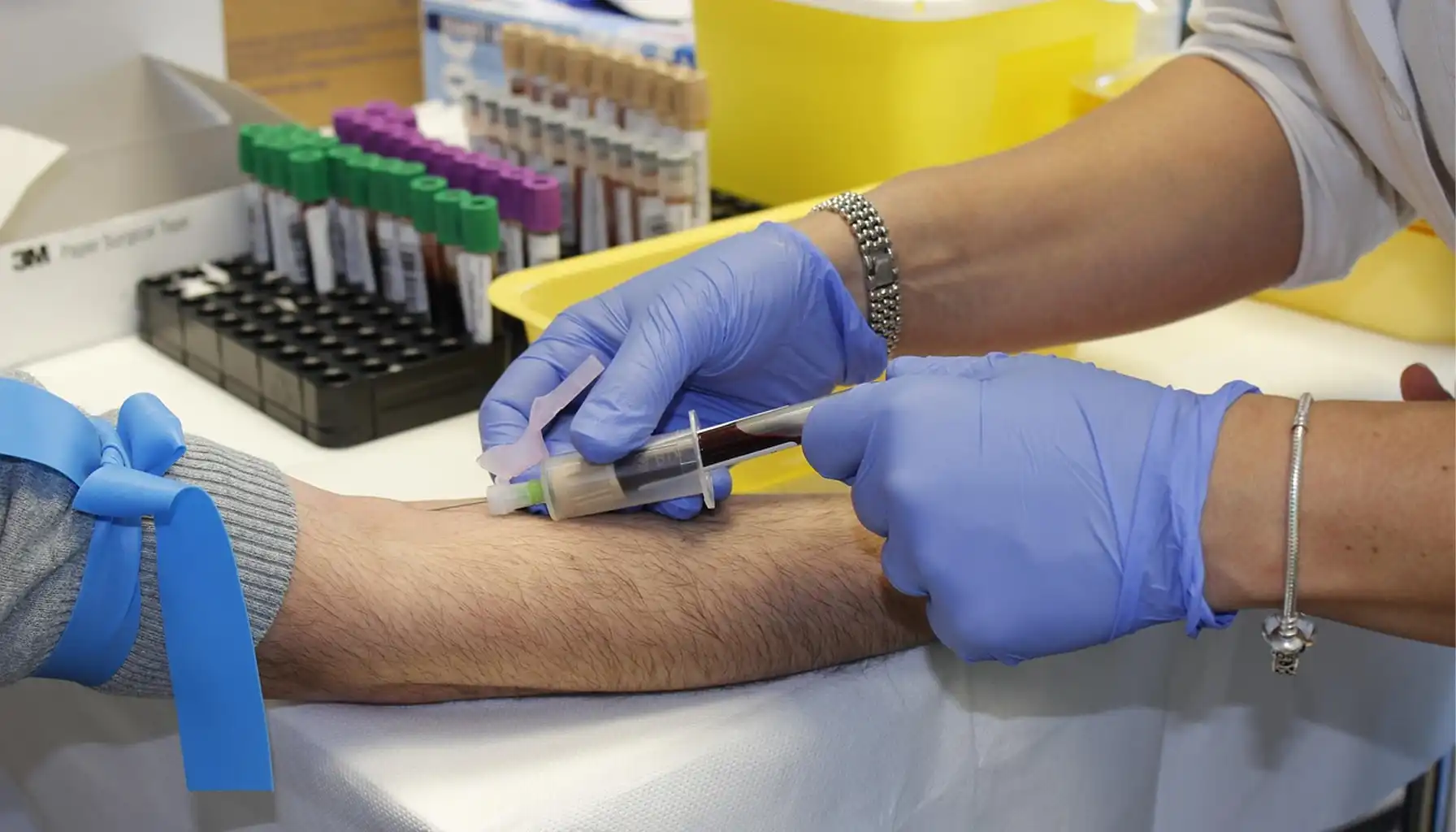Hypochondria: Symptoms, Causes, and Treatments

Contents:
Health becomes a source of constant anxiety for many people. A slight pain in the side, rapid heartbeat or dry mouth — and the imagination paints a picture of a dangerous diagnosis. This condition is called hypochondria. It belongs to the spectrum of mental disorders and shows itself through overwhelming, persistent anxiety about personal health.
Doctors may not find evidence of illness, but for the person affected, the experiences are absolutely real. It’s not just a whim — it’s a tough reality that can put pressure on close relationships, slow down career paths, and make daily life feel a lot harder.
In working with such a condition, both professional therapy and mental practices are useful, for example, brain games for adults, which help train concentration and relieve anxiety reactions.

What is Hypochondria?
Hypochondria Definition and Everyday Understanding
The term has been used in medical literature for hundreds of years. In modern psychiatry, the term illness anxiety disorder is more often used. The meaning remains the same: a person is overly focused on their body and is convinced that he has or may develop a serious illness.
Several characteristic features can be identified:
anxious thoughts about health take up a significant part of the day;
even normal sensations (for example, rumbling in the stomach) are perceived as a signal of a dangerous illness;
medical examinations rarely provide reassurance.
Hypochondria Meaning in Medical Context
If we consider the concept in a scientific sense, then this is not a physical disease, but a cognitive distortion of the perception of body signals. A person becomes trapped in their own thoughts, constantly analyzes his well-being and seeks confirmation of their fears.
Signs and Symptoms of Hypochondria
Hypochondria Symptoms in Daily Life
Typical features include severe anxiety, compulsive pulse or temperature checking, and frequent visits to doctors. People can spend endless hours scrolling through illness-related content online, only to feel even more anxious. Such symptoms create obstacles to concentrate on work, socializing, and rest.

Symptoms of Hypochondria According to Specialists
Doctors identify the following symptoms:
avoiding contact due to fear of infection;
constantly talking about one's condition;
feeling threatened even with normal test results;
difficulty sleeping due to worries about one's health.
obsessive measuring of temperature and blood pressure;
regular "self-examinations" in search of alarming signs;
Signs of Hypochondria in Behavior
Some signs appear in behavior:
frequent visits to different specialists;
distrust of doctors' diagnoses;
sharp swings between seeking help and avoiding clinics.
Hypochondria and OCD
Is Hypochondria a Form of OCD?
For years this topic has sparked arguments, and even now specialists can’t always agree on a single view. These conditions have similarities, but are not identical. In obsessive-compulsive disorder, anxiety is more often associated with infecting or harming others, while in hypochondria, the focus is on one's own body.
OCD and Hypochondria: Shared Patterns
The theme of OCD and health anxiety is connected through repetitive thoughts and rituals. For example, obsessive measuring of temperature or pulse resembles compulsive checking in OCD.
OCD Hypochondria in Research
Researchers use the term ocd and given fear when symptoms of two disorders occur simultaneously. When it comes to these cases, cognitive behavioral therapy usually works best.

What Causes Hypochondria?
Hypochondria Causes According to Psychology
Key factors include:
early experience of illness in the family;
anxious upbringing;
personal traits, a tendency to fixate on the body.
Biological and Emotional Influences
Experts believe that hypochondria is caused by a combination of internal mechanisms of the body and external factors, among which the properties of the nervous system and a high level of stress reactivity play an important role.
Can Hypochondria Cause Symptoms?
Yes, anxiety can cause very real sensations. Increased blood pressure, increased heart rate, a lump in the throat, dizziness, or weak legs are often the result of mental stress, not an underlying physical condition.
Hypochondria and Comorbid Conditions
Narcissism and Hypochondria
The connection between narcissism and fear of illness is that excessive attention to the body and health can be combined with an increased focus on one's own uniqueness and vulnerability. As a result, anxious thoughts not only intensify, but also become part of the perception of one's own specialness.
ADHD and Hypochondria
People diagnosed with ADHD often have a combination of increased health anxiety. They often find it hard to pull their attention away and escape the loop of obsessive thoughts, which only deepens the fixation on every bodily signal and lingering doubt. That’s why therapy tends to take longer and needs strategies shaped precisely for each person.
Treatments and Therapies
Hypochondria Treatment Approaches

The main goal is to reduce anxiety and teach a person to respond to body signals differently.
cognitive behavioral therapy helps to change habitual thinking patterns and reduce fixation on symptoms;
dialectical therapy develops emotional regulation skills and reduces the level of internal stress;
hypnotherapy is used as an additional way of working with deep-seated beliefs;
individual sessions provide an opportunity to focus on personal experience and triggers;
online programs and applications, including Mind Elevate, allow you to consolidate autonomous skills, track emotional patterns and train attention in everyday life.
Relatives should understand how to help hypochondria: avoid reinforcing anxious thoughts and gently motivate professional help.
And here a natural question arises: how to cure hypochondria? It’s more correct to consider this not as a search for complete relief, but as a way to control symptoms. Complete disappearance of anxiety is rare, but lasting relief is quite achievable.
Self-Help and Coping Strategies
How to Deal with Hypochondria in Day-to-Day Living
To make life easier with this condition, you can try:
limiting the time spent on medical forums and chat groups;
setting aside special hours for relaxation without gadgets;
incorporating short walks in the fresh air into your day;
using progressive muscle relaxation techniques;
trying creative activities — drawing, music, handwriting;
making a realistic daily to-do list to prevent overload;
overcoming hypochondria is easier with community support. That's why there are support groups. Participating in a hypochondria support group helps people share stories and find practical solutions together.
How to Overcome Hypochondria Step by Step

For those looking for additional ways to cope with health anxiety, it is important to consider the gradual nature of the changes.
Recognizing the problem. The first step is to openly acknowledge obsessive thoughts about illnesses. It gives a solid foundation upon which to move forward and separates normal uncertainty from signs leading to a real clinical condition requiring expert treatment in the hands of a professional.
Discussion with a psychotherapist. A specialist helps to assess the severity of symptoms, choose an appropriate strategy and build realistic expectations.
Forming new reactions. Instead of automatic checks and searching for confirmation on the Internet, alternative behavior patterns are gradually adopted. For example, recording feelings in a diary or using relaxation techniques.
Building tolerance for uncertainty. People with severe health anxiety often strive for immediate clarity. Working step by step teaches you to tolerate doubts and reduces the need for constant medical reassurance.
Reinforcing changes in everyday life. Over time, these new habits weave into the daily routine and start to feel natural.
Broader Context and Cultural Impact
Historical View of Hypochondria
Even the philosophers of the 18th century asked: what’s hypochondria? At that time, it was believed that the cause lay in the 'vapors' rising from the abdomen. Today, it’s seen more clearly as a psychological phenomenon, shaped by how the mind reacts to fear and uncertainty.
If you try to define hypochondria, it’s not about the habit of complaining, but about a real anxiety disorder that requires the attention of specialists.
In everyday speech, the word is often used jokingly, like the terms dentophobia or hemophobia. However, they still point to real human suffering.
Everyday Lessons from Hypochondria

Comprehending how to stop hypochondria is always grounded in reality: not with the magical disappearance of fear, but with gradual work on yourself. Most often, a combination of psychotherapy, medications and the participation of loved ones helps — this creates a feeling of support and restores control over everyday life.
Everyone has a different path, but practice shows that paying attention to your emotional state and the willingness to openly talk about worries become a real resource.
Even such specific fears as fear of sharp objects can accompany the state of hypochondria, because needles, scalpels and other sharp instruments are often present in the medical environment.
With the right support, such reactions can be eased, and at the same time it becomes possible to gradually reduce general anxiety about health.





